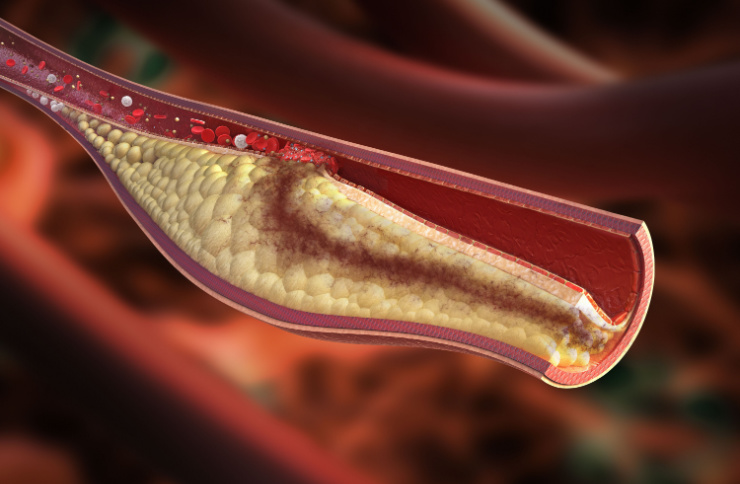At Mercola.com, Dr. Joseph Mercola discusses the importance of the endothelium—the cells lining human blood vessels. He writes:
Your endothelium is the collective group of cells that line your blood vessels. Representing about 1% of your body mass and a surface area of 5,000 square meters, the endothelium has been described as a “multifunctional endocrine organ strategically placed between the vessel wall and the circulating blood.”1
To put this into perspective, a single layer of endothelial cells lines the inner surface of your entire vascular system, separating your blood from the vessel wall. This “tissue-blood barrier” is semipermeable and plays a key role in regulating the transfer of molecules as well as vascular homeostasis.2
While endothelial dysfunction — an early sign of atherosclerosis3 — is a hallmark of many diseases, including cardiovascular disease, there are a host of natural options to protect your endothelium and keep it healthy.
The Role of Your Endothelium on Overall Health
While once regarded as a simple barrier, the endothelium is now regarded as a dynamic endocrine organ that has a major influence on human health. In the International Journal of Biological Sciences, it’s noted:4
“The endothelium was once thought of as the ‘cellophane wrapper’ of the vascular tree, with no other specific functions than affording selective permeability to water and electrolytes. However, enormous advances since the 1980’s have led to an understanding of the complex functions of this large endocrine organ. Vascular endothelial cells line the entire circulatory system, from the heart to the smallest capillaries.
These cells have very distinct and unique functions that are paramount to vascular biology. These functions include fluid filtration, such as in the glomeruli of the kidneys, blood vessel tone, hemostasis, neutrophil recruitment, and hormone trafficking.”
In addition to serving as a physical barrier, endothelial cells metabolize, synthesize and release vasoactive and other compounds that affect vascular tone, blood pressure, blood flow, coagulation, fibrinolysis, inflammation, immunological reactions and more.
“Any perturbation affecting the capacity and equilibrium of the endothelium as a physical barrier and to metabolize, synthesize and release these substances will cause endothelial dysfunction, which contributes to the development and progression of cardiovascular diseases,” according to a review in the World Journal of Cardiology.5 Further, the endothelium is directly involved in a number of diseases, including:6
Peripheral vascular disease Stroke Heart disease Diabetes Insulin resistance Chronic kidney failure Tumor growth and metastasis Venous thrombosis Viral infectious diseases
Read more here.
If you’re willing to fight for Main Street America, click here to sign up for my free weekly email.





